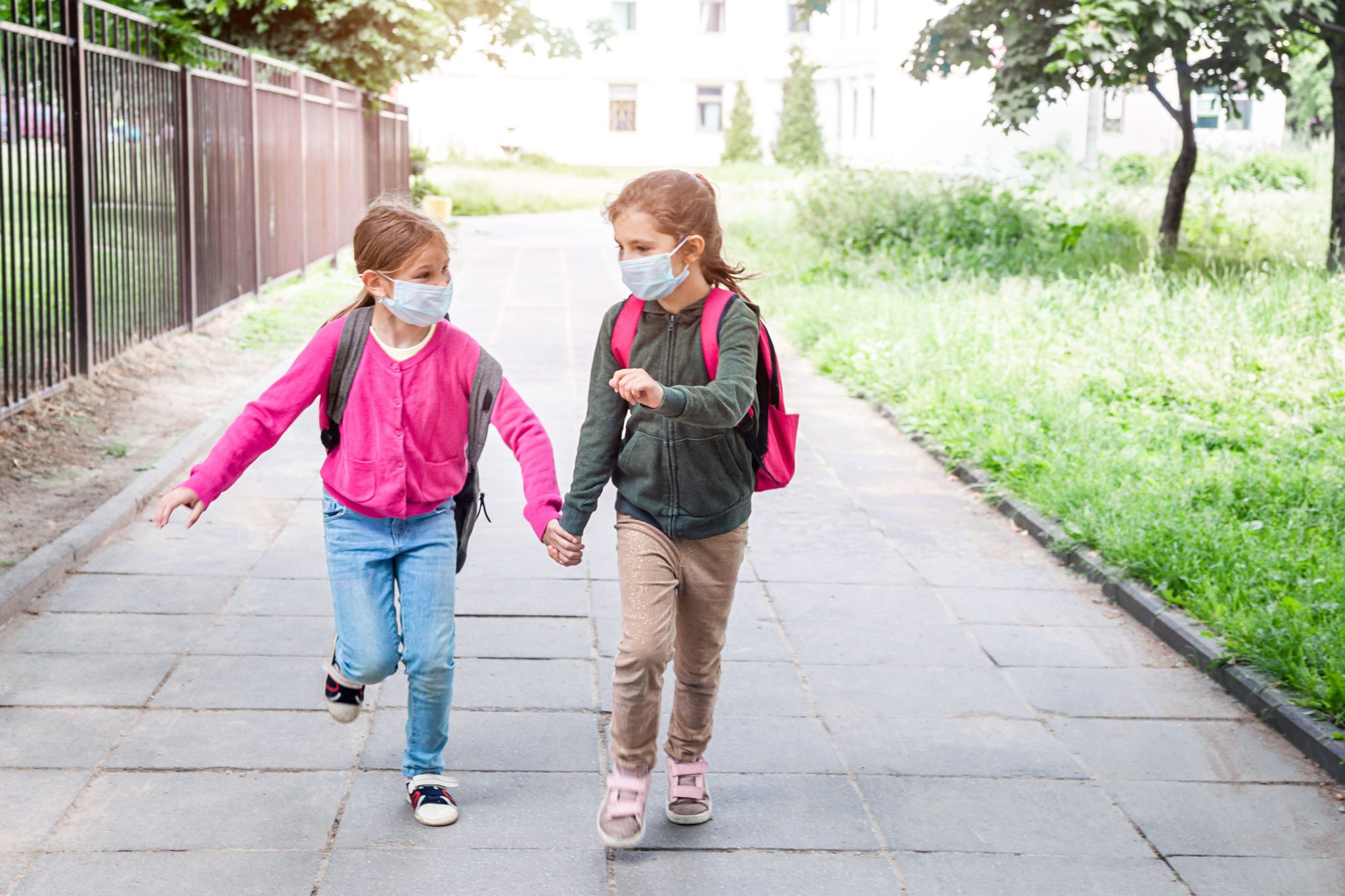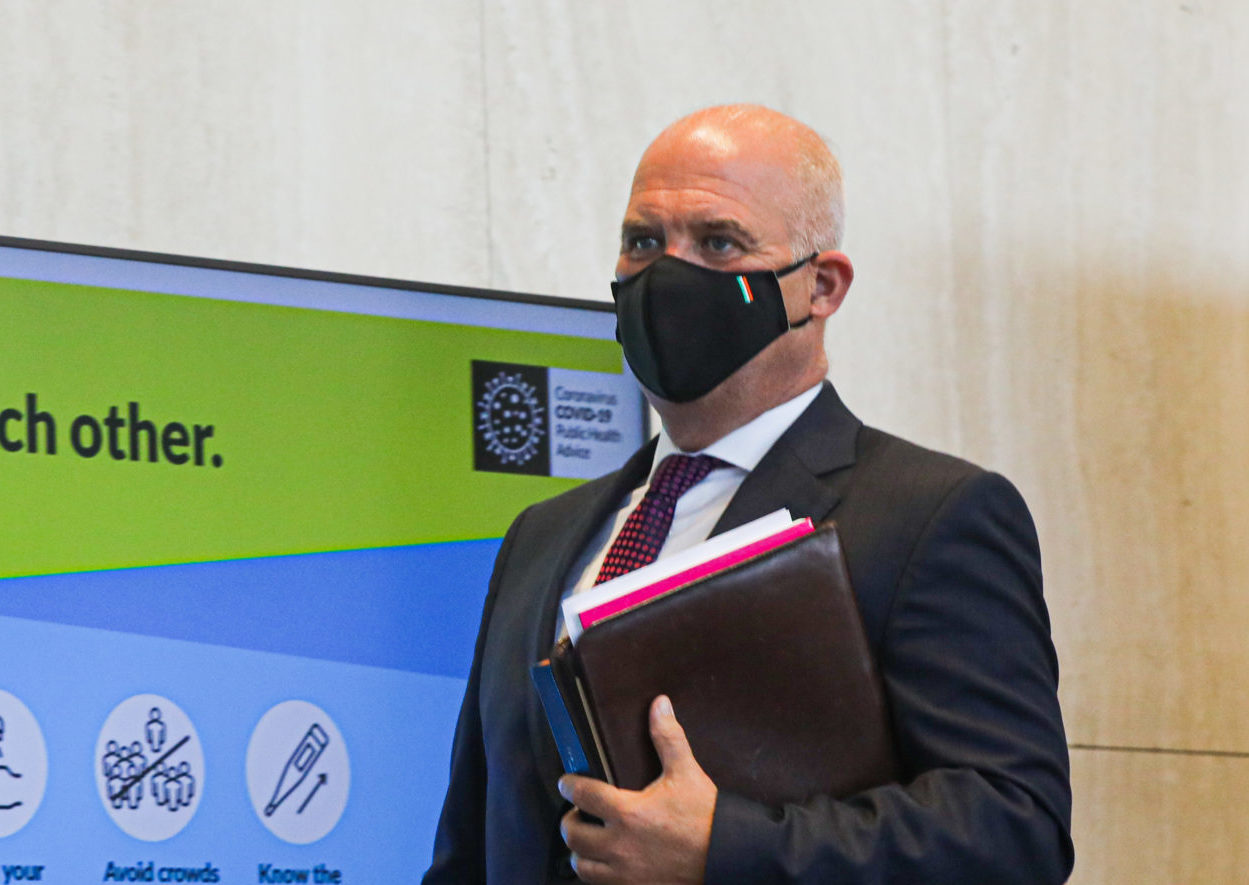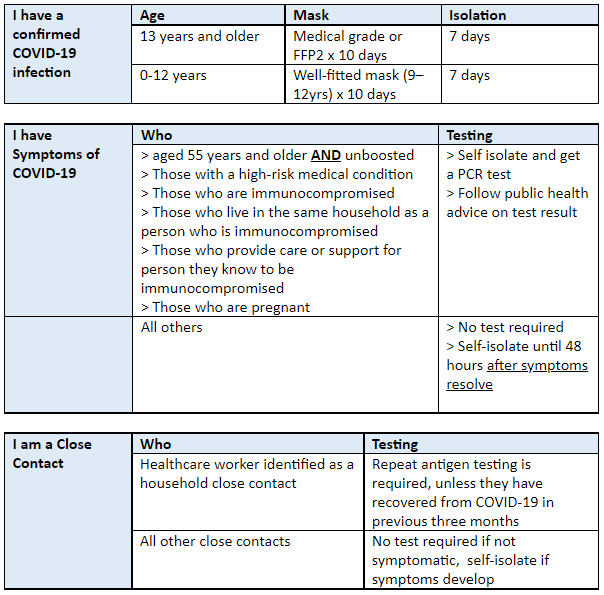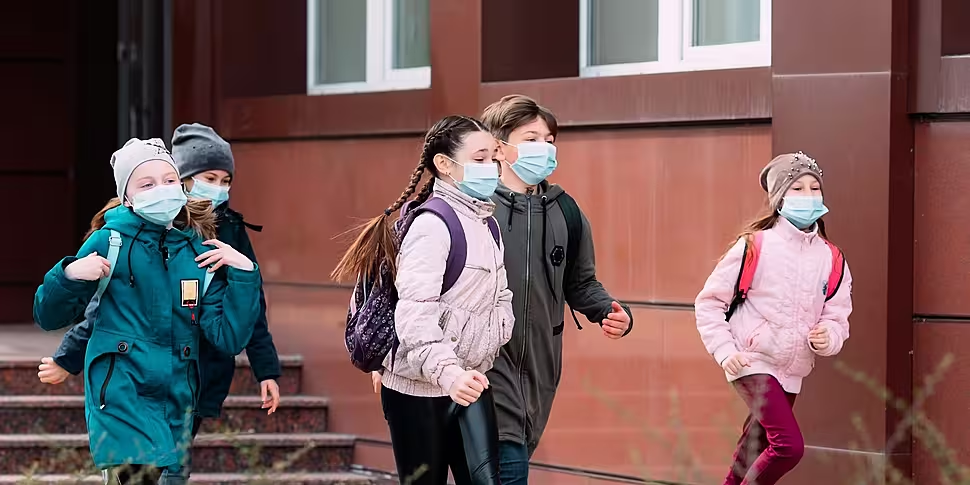Cabinet has confirmed the end of mandatory masks in Ireland.
From Monday, masks will not be mandatory in shops, schools and other indoor settings.
While people will still be advised to wear them on public transport; they will not be mandatory.
Mask-wearing in healthcare settings is to continue “in line with evolving national guidance”; however, it will no longer be underpinned by law.
Meanwhile, protective measures in schools like social distancing, pods and the staggering of breaks can also come to an end from Monday.
 File photo shows two girls running to school wearing protective face masks. Picture by: Aliaksei Yaskevich / Alamy Stock Photo
File photo shows two girls running to school wearing protective face masks. Picture by: Aliaksei Yaskevich / Alamy Stock PhotoThere are also changes to the advice for people who are diagnosed with the virus, have symptoms or are close contacts.
The main update is that people who are over the age of 55 but are otherwise healthy will no longer be offered a PCR test.
The changes were all recommended by the National Public Health Emergency Team (NPHET) in what is expected to be its last meeting.
 Chief Medical Officer and NPHET chair Dr Tony Holohan is seen at a COVID-19 press briefing in the Department of Health in June 2021. Picture by: Leah Farrell / RollingNews.ie
Chief Medical Officer and NPHET chair Dr Tony Holohan is seen at a COVID-19 press briefing in the Department of Health in June 2021. Picture by: Leah Farrell / RollingNews.ieCabinet today agreed to accept all the recommendations in full – meaning NPHET will be disbanded while the office of the Chief Medical Officer continues to monitor the progress of the disease in Ireland.
In a statement this afternoon, the Government warned that “Omicron is still with us” and there are a number of “critical components” of our pandemic response that people should continue to follow in the coming months:
- Immediately self-isolate if you have COVID symptoms
- Get the vaccine and booster
- ‘Manage risk’ for yourself and those who are more vulnerable through mask-wearing, hand hygiene, physical distancing and avoiding crowds where necessary.
- Infection prevention and control measures like hand sanitizer and advice to stay at home when sick will remain in school and childcare settings.
The new advice means that anyone with a confirmed case of COVID must isolate for a minimum of seven days.
 COVID health restrictions. Image: Department of Health
COVID health restrictions. Image: Department of HealthThose aged under 55 who have COVID symptoms but are otherwise healthy will not be offered a test and should self-isolate until 48 hours after their symptoms resolve – provided they had their booster.
Those who are unboosted, suffering from a range of health difficulties or are living with someone who is immunocompromised, should self-isolate and get a PCR test.
Close contacts are not required to self-isolate unless they have symptoms.
Healthcare workers who are identified as household close contacts must carry out repeat antigen testing until they have recovered – unless they were previously diagnosed within the last three months.









